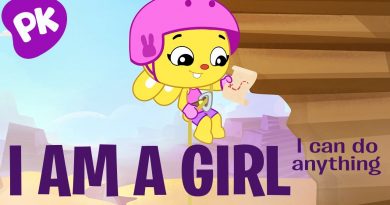eTwinning and Key Competences
eTwinning and Key Competences
First and foremost, we should focus the analysis by understanding that this case study deals with the modern concept of learning, identified as active methodologies, in which children are to be seen as active agents who need to mobilise a number of “competences” that operate in conjunction, to give answers to complex challenges. This apparently simple view of competences (or Key Competences, KC) has really turn the educational system upside down, since the former direct methods do not seem to be that useful to the new educational demands. In our view, it is evident that the idea of putting practical learning into motion from the FL area should be at the heart of the final paper; therefore, more than overwhelming the readers (board of examiners) with isolated definitions and theoretical ideas taken from the legal framework, a more promising resolution guideline would concentrate on how to plan learning products (examples) that lead students to competency learning. However, it is fundamental to count on a certain theoretical background.
The burst of competences in the European educational context is the result of a deep reflection concerning the necessary adaptation of school strategies so as to give response to the complex demands in our technological, pluricultural and plurilingual society. Indeed, Key Competences in the shape of knowledge, skills and attitudes appropriate to each context are fundamental for each individual in a knowledge-based society. They provide added value for the labour market, social cohesion and active citizenship by offering flexibility and adaptability, satisfaction and motivation. Thus, competences have come to stay in education due to social demands and the advances of modern societies. According to the European Reference Framework (2006), KC are defined as a combination of knowledge, skills and attitudes appropriate to the context.
The Spanish educational system has echoed the relevance of introducing these concepts in our daily practice, understanding that this combination of knowledge, abilities, skills and attitudes shall bring about individuals able to face the challenges in the 21st century. In this light, our current legal framework is oriented towards a competence-based curriculum in which the concept of meaningful and practical learning is at the heart of the teaching-learning process.
On the other hand, the eTwinning platform enhances the role of the teacher as creator of learning scenarios that contextualise the use of English effectively. Thus, it is no wonder that the project-based approach (PBA) has gained momentum in recent years, due to its versatility and adaptation to cooperative and meaningful learning. eTwinning promotes school collaboration in Europe through the use of Information and Communication Technologies (ICT) by providing support, tools and services for schools. eTwinning also offers opportunities for free and continuing online professional development for educators. eTwinning offers a platform for staff (teachers, head teachers, librarians, etc.), working in a school in one of the European countries involved, to communicate, collaborate, develop projects, share and, in short, feel and be part of the most exciting learning community in Europe.
In carrying out an eTwinning project, success depends to a great extent on the partners’ selection process and their eventual commitment towards the common project. In this light, it is advisable to establish some criteria to select the partners who want to take part in the project we have launched. This can be done by a deep study of their “eTwinner profiles”, which shall shed light of their experience, previous projects and outcomes, etc. In this same line, establishing as a condition the serious intention to run for an eTwinning school label, which obviously requires more involvement and ensures profitable educational interchange in English.
A prime example can be an oral presentation in groups. In this task, children may practise how to introduce themselves as members of their team. Their presentation can be recorded and uploaded to the FL blog and the eTwinning space. Besides, in this learning product children “meet” their partners from other countries, which is the starting point for a Skype conversation. Once they know a little about their new friends, it is time to greet and maintain brief conversations in groups according to previously rehearsed scrips and patterns. Moreover, the program is in itself a triggering learning scenario to not only contextualise the language in real purposeful situations, but also to mobilise the students´ competences, especially LC, DC and LTL.
…
More information about us:
facebook.com/OposicionesInglesRP/
Twitter: @OposIngles
https://twitter.com/OposIngles
Instagram: https://www.instagram.com/oposiciones_ingles




